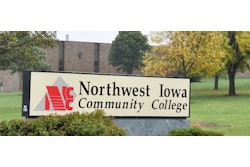U.S. colleges must reach out to minority students to maintain this nation’s educated work force and to compete globally.
To a large degree, the decisions we make in the next few years about higher education will determine whether we will maintain global economic leadership or be overtaken by countries with a bettereducated populace and a better-trained work force. National wealth and security are determined more by investment in education than by the size of the military or natural resources.
There are troubling signs that suggest that we as a nation have lost our commitment to universal access to higher education and our passion for educational excellence. These signs are everywhere and unmistakable. Funding for colleges and universities has failed to keep pace with enrollment costs, and in most states the gap is growing. As a result, numerous universities have increased tuition costs beyond the reach of many students.
We must reclaim the American dream if we are going to compete successfully. This will not be an easy task. Every generation except for this one has achieved a higher educational level than its parents. And as grim as these statistics are, they are far worse for minorities. Population increases are driven largely by population growth among Hispanics, immigrants and other minorities. This is the work force of the future.
It is fair to say that we have not been particularly successful in educating minorities. Most of us are familiar with data that drive that particular point home. Permit us to share the Arizona data to illustrate the magnitude of the problem. More than 45 percent of the Hispanics in Arizona have less than a high school education, and only 5.7 percent have a bachelor’s degree. For myriad reasons, many Hispanics drop out of school before they reach the ninth grade. American Indians do not fare much better. The levels of educational attainment of African-Americans are better than Hispanics, but fall far short of the educational levels of Whites.
It does not stretch the imagination to conclude that what we are doing does not work for minorities, and that we should try different approaches and other models.
Community colleges have been the historical gateway to access to education for both minorities and immigrants. This is particularly true for Hispanics. For many minorities and nontraditional students, the path to a baccalaureate degree, a master’s and even a doctorate begins with the local community college. Improving access to baccalaureate education through community colleges is the mission of the Community College Baccalaureate Association (CCBA). While supporting the idea that community college districts should offer baccalaureate degrees when local circumstances warrant, CCBA also promotes many other forms of access. Foremost among these is the need for improved articulation agreements with universities such as 3+1, 2+2, and 2+2+2 arrangements.
Improved articulation agreements ensure quality and reduce costs to students and the public. More important, they increase access to baccalaureate degrees for thousands of individuals who would otherwise be unable to continue their education. Fair or unfair, one consistent criticism of public universities across this country is that they are becoming less accessible to various constituencies and many communities. In this climate of declining resources, leveraging the resources of community colleges not only helps individual students and their families, but it increases the reach of universities to communities that are underserved and underrepresented in university life. Many universities see the benefits in improving these partnerships.
Community colleges in 17 states now confer baccalaureate degrees. By all accounts, these are quality programs that are well received by their communities. These degrees are largely work force related or designed to address the well-known nursing and teacher crises. There are more than 100 such degrees, with names such as Emergency Responder Administration, Fire Science Management, Exceptional Student Education, Ecotourism and Outdoor Leadership, Technology Management, Orthotics and Prosthetics or Software Technology. The baby boom generation never dreamed of degrees with names like these.
CCBA also supports closer collaboration between community colleges and baccalaureate- granting institutions in conferring degrees through brick-and-mortar partnerships in university centers, jointly administered distance education programs, as well as the creation of centers of higher learning in which community colleges offer the first two years and the partner institutions offer the required junior and senior courses. Beyond sharing physical resources, CCBA also supports joint appointment of faculty, counselors and other staff to provide greater access for all students.
— Roy Flores is chancellor of Pima Community College, and Beth Hagan is executive director of the Community College Baccalaureate Association.
The forum is sponsored in partnership with the National Institute for Staff and Organizational Development (NISOD) at The University of Texas at Austin.
Click here to post and read comments
© Copyright 2005 by DiverseEducation.com















